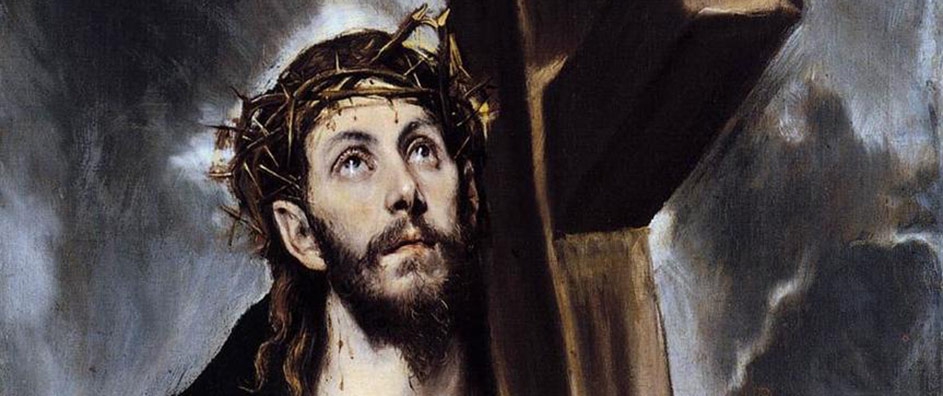The views expressed in our content reflect individual perspectives and do not represent the authoritative views of the Baha'i Faith.
Which one of the prophets did your fathers not persecute? – Acts 7:52
Throughout human history, we’ve always made our visionaries suffer. So I’d like to ask a serious question: what’s our problem, people?
Human beings always manage to reject new messages, and blame, punish and kill the messengers who bring them. We typically tend to persecute our visionaries, our scientific pioneers and our great spiritual teachers. History demonstrates that the founders of new Faiths and the discoverers of new truths have undergone tremendous pain, persecution and torment. We have rewarded our prophets, both religious and scientific, with prison bars—and homelessness, starvation, exile, banishment, beatings, torture and agonizing death:
The advanced men of all time have ever been persecuted and continually in adversity. He who discovered the movement of the earth and the relative immobility of the sun terminated his days in prison, because his teachings did not please the priests. – Abdu’l-Baha, Divine Philosophy, pp. 42-43.
In the greatest irony of all time, this persecution happens long before we turn to those prophets and their teachings by the millions, venerating, believing and worshipping their messages. Despite the peaceful, spiritual intentions of the prophets; despite their love for us all; despite their messages of hope and love and unity and harmony; they each faced enormous opposition when they appeared and began to proclaim a new Faith.
Part of the reason these prophets endured such privation, all the holy books say, was to demonstrate that this physical life is fleeting, and that we should turn our attention to the life of the spirit. The Baha’i teachings often reflect on that theme, concluding that God’s prophets and messengers suffer such persecutions to help demonstrate the immortality of the human soul:
…the idea of mortality presupposes the existence of immortality — for if there were no Life Eternal, there would be no way of measuring the life of this world!
If the spirit were not immortal, how could the Manifestations of God endure such terrible trials?
Why did Christ Jesus suffer the fearful death on the cross?
Why did Muhammad bear persecutions?
Why did the Bab make the supreme sacrifice and why did Baha’u’llah pass the years of his life in prison?
Why should all this suffering have been, if not to prove the everlasting life of the spirit?
Christ suffered, He accepted all His trials because of the immortality of His spirit. If a man reflects he will understand the spiritual significance of the law of progress; how all moves from the inferior to the superior degree. It is only a man without intelligence who, after considering these things, can imagine that the great scheme of creation should suddenly cease to progress, that evolution should come to such an inadequate end! – Abdu’l-Baha, Paris Talks, p. 93.
Each of the founders of the world’s great Faiths had to face these kinds of terrible tests, trials and tribulations. Baha’u’llah, the prophet and founder of the Baha’i Faith, likely suffered them for the longest period—forty years.
Initially raised in relative comfort as the son of a landowner and government minister, Baha’u’llah began to face the cruel agonies of extreme opposition when he became a follower of the Bab in the mid-1840s in Persia. Violently persecuted by the Muslim clergy and governmental officials, the Bab and his followers suffered unprecedented, historic levels of abuse, torture and death as a result of their beliefs.
Baha’u’llah first faced physical torture for his beliefs at the age of 35 in 1852, when he suffered the horrible pain of the bastinado—an excruciating whipping and laceration of the soles of the feet:
…Baha’u’llah stepped forth from his tent and explained the birth of a new cycle – that the horizons were flooded with new ideals—the antiquated laws were no longer valid – that a new revelation, a new light had come. He exhorted them to sacrifice themselves for it. From that moment the cause of Baha’u’llah leaped into a flaming torch.
These are the conditions under which this great universal movement began. Persia was in revolt. The government set itself against the movement, the ulama supporting the government. Terrible massacres ensued. They seized the body of Baha’u’llah and imprisoned him in Tehran where the ulama met and summoned him to appear before them in the mosque that they might question him and refute his statements. They searched one of his disciples and found on him a paper containing teachings in the Bab’s handwriting in which there were inaccuracies from their orthodox Mohammedan viewpoint. Baha’u’llah showed them with incontrovertible proof that the mistakes lay in their limited interpretations—that the reality of truth is one. They became enraged and put him to the torture of the bastinado, inflicting sixty strokes. They condemned him to death and ordered the executioner to come with his instruments of torture to martyr their majestic prisoner. The governor, fearful lest the people should arise to vindicate Baha’u’llah, caused an opening to be made in the wall of the mosque through which Baha’u’llah was taken by night to the governor’s house and after a time the order came to liberate him. – ibid, p. 65.
This first horrendous episode of torture in Baha’u’llah’s life would not be the last. What can we learn from those events? The Baha’i teachings tell us that the torture and martyrdom our prophets received—from the crucifixion of Christ; to Abraham being sentenced to the flames; to the torture, exile and imprisonment of Baha’u’llah—all contain a profound lesson for humanity. What is it? In the next essay in this series, we’ll see if we can find answers to that important question.
















Comments
Sign in or create an account
Continue with Googleor